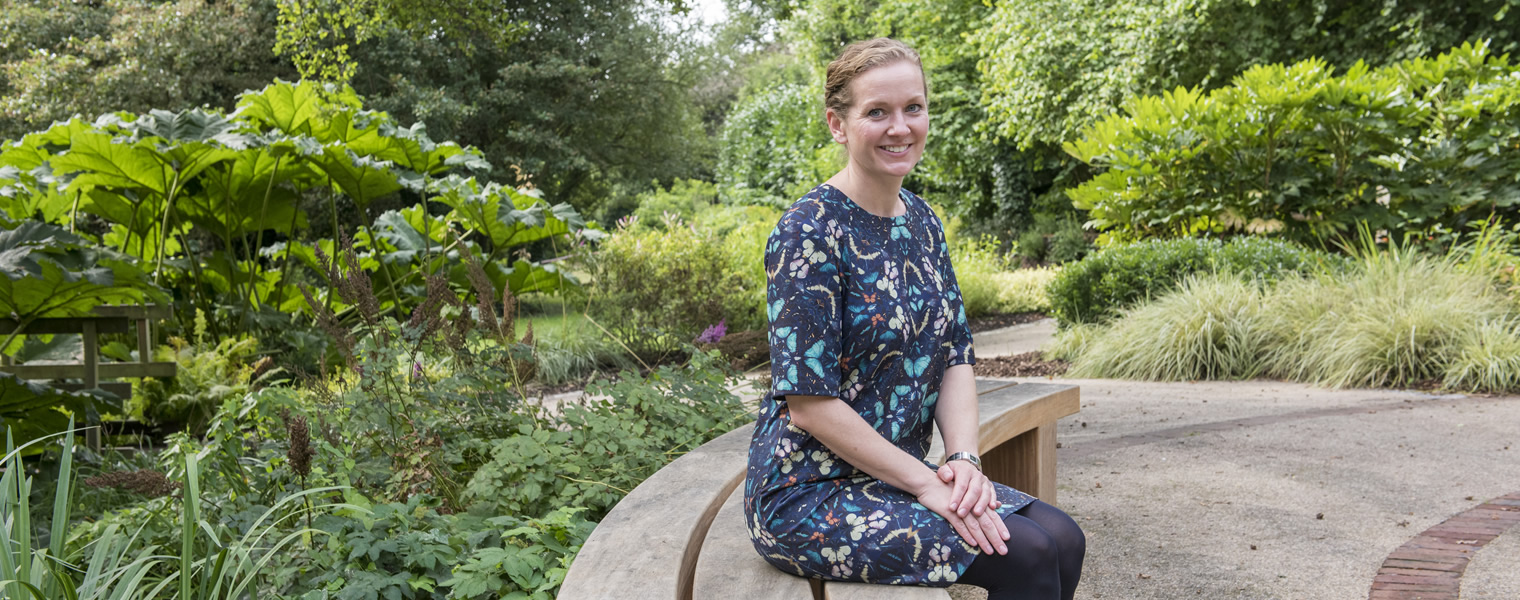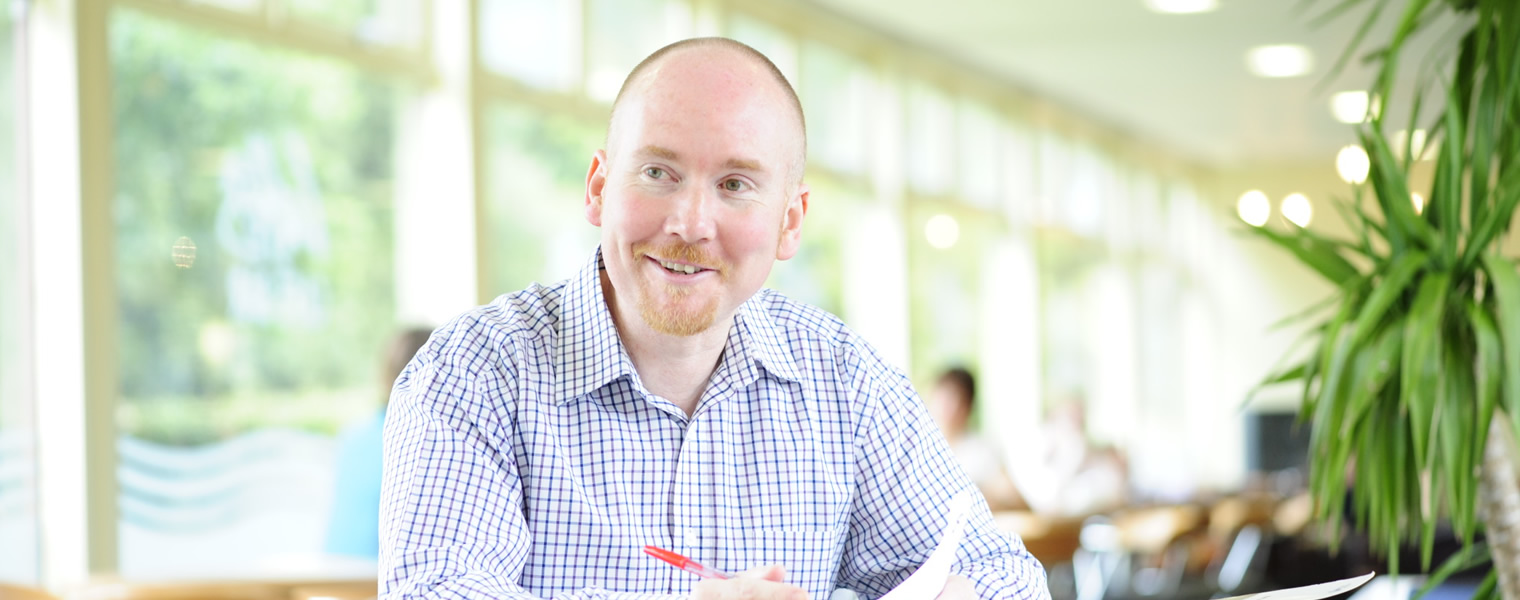Hartley News Online Your alumni and supporter magazine
With the International Conference on Sustainable Development taking place in New York this month, Southampton Connects looks at the University’s approach to sustainability. We talk to Lucy Potashnick, the University’s Environment and Sustainability Manager, and Professor Simon Kemp, University Lead in Education for Sustainable Development, who are the co-chairs of Sustainability Action.
Sustainability is a broad term that means ‘meeting the needs of the present without compromising the ability of future generations to meet their own needs’ (United Nations World Commission on Environment and Development, 1987). In the context of the University it relates to our teaching and research, and our resource use such as energy and water. “This is fundamental to our future on the planet and more immediately, how we operate as a university,” says Lucy. “International conferences such as the one in New York raise people’s awareness of this topic, which is a positive thing.
Here at Southampton we manage our environment to a very high standard, working to the international environmental management system ISO 14001. This enables us to consider our estate and operations minimising our impact on the environment.
Lucy adds: “We apply IS0 14001 across the whole University – and this means incorporating it into our education and research activities too.”
At the conference in New York, world leaders will debate how to achieve the 17 Sustainable Development Goals. These are broad and ambitious; they include ending poverty, improving food security and conserving the oceans. “Every one of those goals is relevant to our research and teaching here at the University. Everything we do is linked into sustainability, and now it’s part of our new strategy, it’s vital to the way we work,” says Simon.
Often you will hear the terms ‘sustainability’ and ‘reducing carbon emissions’ used interchangeably in the media. “The social aspects – engaging staff, students and the local community – are just as important as considering the impacts of our physical environment,” says Lucy.
Collegial culture
“Sustainability involves the whole University,” Simon explains. “Our approach is to embed the principles of sustainability into everything we do, using our estate as a research, teaching and student engagement tool. This is unusual in a university environment, where often academics, estates staff, and students work independently.
“To give just one example, recently our students on the Environmental Law module produced an environmental legislation register to evaluate the University’s performance on legislation compliance and good sustainability practice,” Simon adds. “As well as gathering valuable data for the university, the students gained vital skills such as surveying, analysis and professional report writing to make them stand out in their future careers. Sustainability content is also prevalent across the curriculum in a large number of our undergraduate and postgraduate programmes, in subjects such as health sciences, business, archaeology, geography, politics, oceanography, biology, and engineering, to name just a few.”
Initiatives to get staff and students involved in activities to improve the University’s sustainability are important. In previous years, the Blackout event has brought together over 200 student and staff volunteers each year to turn off all the non-business-critical electrical equipment across 45 buildings. Blackout is the biggest switch-off and energy audit of its kind in the higher education sector.
Other sustainability campaigns include Waste Wars, in which around 100 staff and students work together to audit university waste and identify areas of greatest contamination as means of increasing our recycling rate, and Southampton BioBlitz, which enables staff and students to explore and record local biodiversity. “Our collegial spirit here at Southampton allows us to make the most of people’s passion and desire to make a difference,” says Simon.
Empowering our students
Something that sets the University apart is the way we embed sustainability into our formal and informal curriculum, and use it to give our students valuable skills for the future.
We run the UK’s only module on environment management systems, where students work in partnership with large regional organisations to conduct consultancy work on their behalf. “Our students on this module go out and develop full environment management systems to the global ISO 14001 standard for organisations such as Southampton International Airport and the Ordnance Survey,” says Simon. “We get amazing employability rates for these graduates because they have very sought after professional sustainability auditing skills and experience.” This module is run with support from Lucy as the manager of the University’s environment management system, as an example of integrating the work of academics, estates colleagues, and students for the development of sustainability skills.
We also give our students responsibility for planning projects and events. A key example was our International Student Sustainability Research Symposium in April, which was the first of its kind and attracted students from across the globe to present their individual research projects in the area of sustainability. “Our student committee selected all the papers, judged the presentations, chaired all the sessions, and organised the social media – all valuable skills for their future, while the student speakers were able to present their sustainability research work to a UK and international audience” says Simon.
We aim to convey a sense of sustainability literacy and responsibility to our students; they will be applying this throughout their lives and their careers, and this is where we will see the biggest difference decades into the future.
“This is where working together as a university on sustainability – bringing together estates, teaching, research and students –makes a huge impact,” says Lucy.
National and international recognition
The University has seen some real achievements in recent years. “We are nationally and internationally renowned for our collaborative work on sustainability,” says Simon. This year the University has been nominated for a Green Gown Award for Student Engagement from the Environmental Association for Universities and Colleges. Simon has won several national awards for his excellence in teaching sustainability, including the Times Higher Education Most Innovative Teacher of the Year award in 2013.
Closer to home, the ChemSustainAbility Team won a Vice-Chancellor’s award this year for their innovative project to improve the way labs are run and managed.
Passion for positive change
We asked Lucy and Simon what motivates them to work in the area of sustainability.
“As someone who is passionate about the natural world, having a job that enables me to protect it is what I enjoy most. I love the feeling that I can leave the planet in a better state than it would otherwise be,” says Lucy.
Simon adds: “For me, the best part is working with brilliant people. There are so many intellectually stimulating, passionate people – and collectively we can make a real difference. I love that. Most of all I genuinely love working with students on sustainability – you get such energy from them and such amazing ideas to create something positive for the future.”
For more information on sustainability at Southampton, visit www.southampton.ac.uk/sustainability and www.southampton.ac.uk/sustainabilityaction

